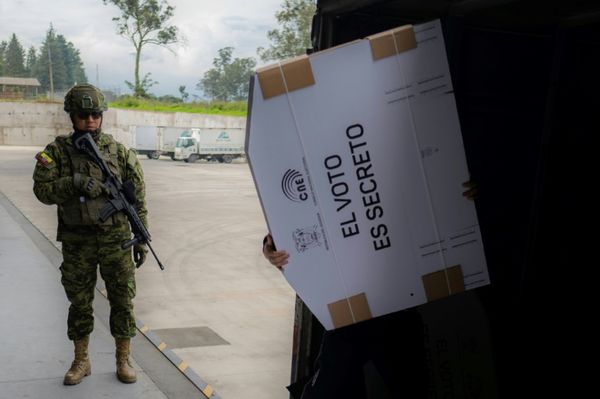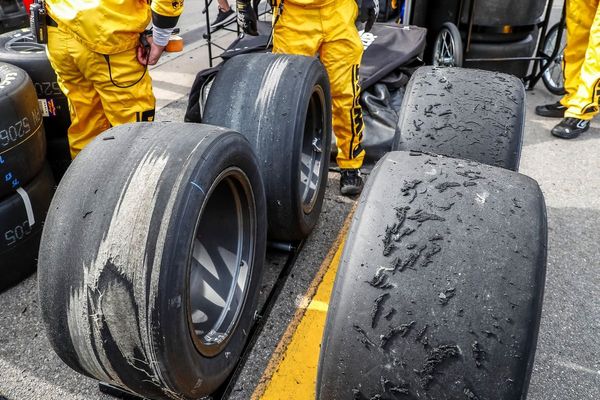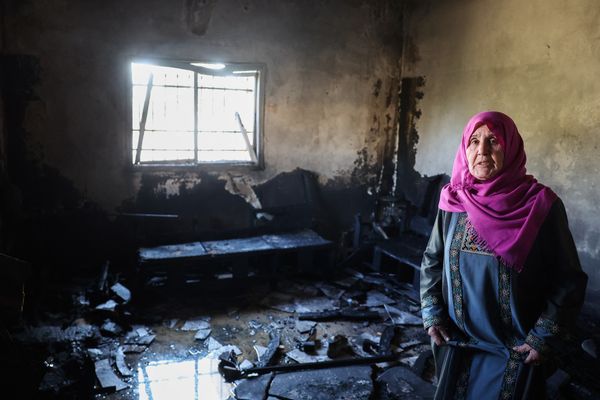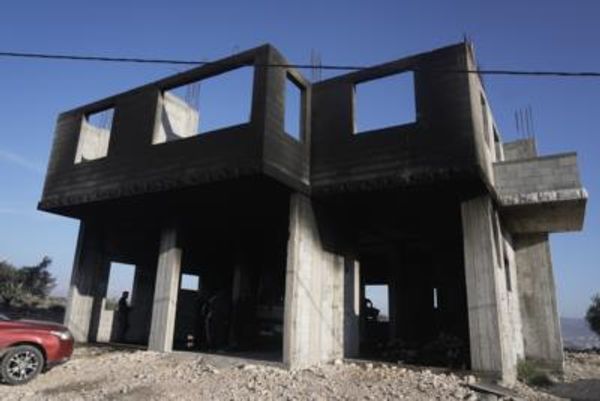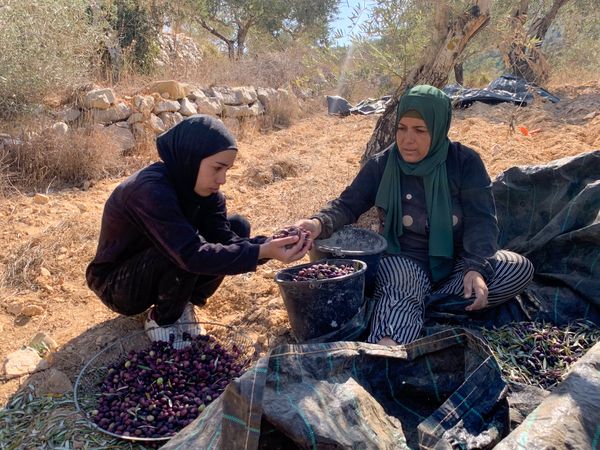
Israeli soldiers based in the occupied West Bank city of Hebron have intensified a campaign of arbitrary detentions, beatings and abuse of Palestinians, according to Guardian interviews with affected residents and new research by the rights group B’Tselem.
Three people described being seized on the street while going about their daily business on flimsy pretexts such as photos of Palestinian flags found on their phones or allegations of stone-throwing. They were handcuffed, blindfolded and taken to nearby military posts, where they were subjected to mental and physical abuse for hours. One 60-year-old man, Bader a-Tamimi, said he was hit in the torso and thrown against the wall after asking soldiers to stop destroying the wares in his souvenir shop.
The Guardian’s findings support a new B’Tselem report based on more than 20 similar testimonies collected in Hebron, which has a heavy Israeli army presence, between May and August.
B’Tselem alleges there has been a shift in the scope, type and severity of violence inflicted by Israeli forces on Palestinians in the West Bank since 7 October 2023. In more than one incident, the assailants recorded or livestreamed the abuse in video calls, apparently unconcerned about repercussions.
The report paints what the respected Jerusalem-based group’s executive director, Yuli Novak, called a “shocking picture of the violent behavioural norms of Israeli soldiers”.
One interviewee, Amir Jaber, 19, along with his father, Aref, 50, was detained and beaten again on his way home last week after talking to the Guardian and the German public broadcaster ARD. He said he had told friends beforehand he was going to meet journalists.
After searching their phones, Aref said the Israel Defense Forces (IDF) troops claimed that a photo of an army Jeep from Amir’s last detention, saved from Facebook, was illegal, and took the pair to a nearby military post. Both were beaten, as photos shared with the Guardian show. Aref said soldiers told him: “You are Hamas” and swore at him, repeating questions about the photo of the Jeep and hitting and kicking him, before the father and son were let go three hours later.
The IDF said Amir Jaber was “stalled for three hours” for questioning when photos of IDF forces were found on his phone. It said it was unaware of the allegations made by his father, and did not comment when asked whether it was connected to the fact that Amir had spoken to media about his experience in June. Another interviewee, Yasser Abu Markhiyeh, 53, was detained and beaten in July after giving an interview to Al Jazeera about another detention a few weeks before.
Regarding the wider allegations made by detainees and in the B’Tselem report, the IDF said it “cannot properly investigate the matter or provide a response without specific details”.
Novak said: “After more than a year of Israel’s unrelenting war against the Palestinian people, abuse of Palestinian passersby has become a desirable, even required practice. These are not isolated incidents or a departure from operating procedures, but rather a pattern representative of systemic attitudes, which are themselves the result of the dehumanisation of Palestinians, steered by the Israeli government.”
Amir Jaber was previously abducted from a friend’s garden at about 9pm on 21 June. Soldiers broke up the group of four drinking coffee and smoking a nargileh, hitting them with the butts of rifles and forcing them to kneel. Jaber was searched roughly, slapped and accused of throwing stones, which he denied. He was blindfolded and his hands bound with too-tight zip ties before being driven to a military base, where several soldiers beat him – some with clubs – and poured water on him before turning the air conditioning to its lowest setting.
Jaber also described being forced to curse his mother and having water and a cookie placed at his lips and snatched away before he was released at about 4.30am, on the side of the road, with no idea where he was.
“I still have problems with my legs now,” the 19-year-old said. “I didn’t want to go to the doctor because I was afraid the soldiers would find me there … Every time I see them on the street now I feel anxious.”
Violence has surged in the West Bank in parallel with Israel’s war in Gaza, triggered by the Hamas attack on Israel in October last year. Nearly 800 people have been killed by Israeli fire, including 160 children, according to the Ramallah-based Palestinian health ministry, and arrests – including administrative detention, which allows indefinite detention without charge – have reached historic levels.
Israel has conducted near-nightly raids on the West Bank’s historic refugee camps and other urban centres since the war began, which it says are to thwart a significant rise in Palestinian attacks on Israelis that originate from the territory. Settler violence has also risen to record highs.
Hebron, in the south of the West Bank, has faced some of the worst impact, which Palestinians and rights groups say is aimed at forcing residents to leave or else live in constant fear of arbitrary violence.
The ancient city is home to the Ibrahimi mosque, also known as the Tomb of the Patriarchs, holy to both Jews and Muslims. Uniquely in the West Bank, other than East Jerusalem, the city centre was divided into two in the 1990s in a temporary measure. The arrangement is now de facto permanent: H1 is administered by the Palestinian Authority and H2 is under Israeli military control.
Today, H2 is home to 33,000 Palestinians and about 900 Israeli settlers, protected by between 1,000 and 1,500 IDF soldiers. Daily life for Palestinians in the area – one of the most contested and militarised places in the territories – has long been hard. After the 7 October attacks, IDF-imposed limits on freedom of movement turned into a full-blown lockdown that lasted weeks; a year later, a nightly curfew is still in place.
Ismail Jaber, a 22-year-old painter and decorator, was going home from the barbershop one afternoon in May when two soldiers ran over with their guns pointed at him. He was forced to kneel blindfolded and handcuffed on the street for 90 minutes before being beaten and taken to a military base, where he was again beaten repeatedly, cut with a knife, burnt with a lighter, and soldiers put guns to his head and told them they would kill him. He was released about five hours later.
“The soldier said if he caught me again, he’d come to my house, shoot me and rape my mother and sister,” he said. “There is no reason they picked me up. The only crime is being Palestinian.”



